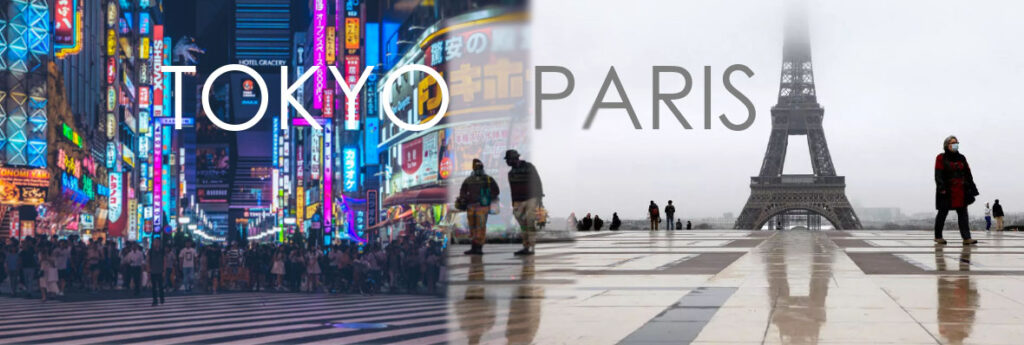France is set to announce new coronavirus restrictions on Thursday, including a potential lockdown in the Paris region and in the north of the country, as the number of COVID-19 patients in intensive care units spike.
“We will make the decisions we need to make,” French President Emmanuel Macron said on Wednesday while visiting the hospital of Poissy and Saint-Germain-en-Laye, west of Paris. He added measures will be “pragmatic, proportionated and targeted.”
Prime Minister Jean Castex is scheduled to detail new restrictions on Thursday.
The virus is rapidly spreading in the Paris region, where the rate of infection has reached over 420 per 100,000 inhabitants and ICUs are closed to saturation. France’s nationwide infection rate is about 250 per 100,000.
As during previous infection peaks, health authorities have organized transfers of critically ill patients to less-affected regions to ease some of the pressure on hospitals in Paris and in northern and southern France.
People in France have been under a 6 p.m. to 6 a.m. nationwide curfew for two months.
Tokyo
Meanwhile Japan said Thursday it would end a month long state of emergency in the Tokyo area set up to curb the spread of the coronavirus, despite concerns the spring party season and next week’s Olympic torch relay could fuel a resurgence.
The emergency measures are set to be lifted on Sunday, Prime Minister Yoshihide Suga announced during a government task force meeting.
The move underscores the government’s eagerness to minimize burdens on businesses and keep the economy going. However, some experts warned that although Tokyo has managed to bring down the rate of new infections, the decline has levelled off and could rebound.
Cautionary measures after the end of the emergency will be crucial, said Shigeru Omi, a doctor on a government panel of coronavirus experts.
“We must prevent a rebound of infections. We must avoid putting strains on the medical and public health systems like before,” Omi said.
Tokyo and three neighbouring prefectures have been under emergency measures since Jan. 7, mainly requests for restaurants and bars to close at 8 p.m. and take preventive measures, as well as asking companies and employees to do more remote work. Similar emergency measures were lifted in six urban areas late last month.
Japan has managed to keep virus cases and deaths relatively low without enforcing a hard lockdown, with the Health Ministry tallying more than 8,700 deaths out of 450,000 total cases throughout the pandemic.
Suga said indicators such as daily new cases and hospital bed occupancy rates have come down to levels that allow the emergency to be lifted in Tokyo, Kanagawa, Chiba and Saitama prefectures.
Suga thanked people for coping with restrictions and sought their continuing co-operation, saying measures to prevent a resurgence still are necessary, as new cases in Tokyo are not declining steadily.
“In order to prevent the resurgence of the infections, we will do all we can to … get the coronavirus under control while co-operating with local authorities,” Suga said at a news conference. “It is my responsibility to protect the lives and health of the people.”
Fears of a potential resurgence are rising outside the Tokyo area as well. The governor of the northern prefecture of Miyagi issued a non-binding local emergency after new cases spiked this month.
The prime minister said the government will expand testing and step up monitoring of new variants of the virus believed to be more contagious, while carrying out vaccinations safely and promptly.
Restaurants and bars can stay open only an hour longer until 9 p.m., though those who co-operate will get a 40,000-yen ($460) in return.
Since last year, the Japanese economy has been slammed by a drop in consumption, tourism, exports and manufacturing.
The decision to lift the measure comes just days before the nationwide Olympic torch relay begins in Fukushima prefecture on March 25.

